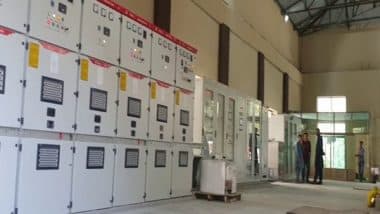Gilgit [PoGB], January 14 (ANI): Residents of Pakistan-occupied Gilgit Baltistan are enduring one of the harshest winters in recent memory, as severe power outages continue to plague the region.
Despite being rich in natural resources, including vast water reserves, the area faces chronic energy shortages, with locals attributing the crisis to mismanagement, corruption, and unfinished infrastructure projects.
Also Read | Pakistan: Jailed Former PM Imran Khan’s Wife Bushra Bibi Secures Bail in over a Dozen Cases.
One resident expressed the urgency of the situation, explaining that even in 2025, PoGB will produce around 300-400 MW of electricity, despite having the potential to generate up to 40,000 MW. The lack of local energy production has forced residents to rely on temporary solutions, such as generators, but these measures often fall short.
"You would have seen thousands of women and children staging sit-ins in Hunza for nearly six days. After lengthy negotiations, the government promised to provide electricity through generators, but the root cause of this issue is the lack of energy production in the region," the resident said.
The power outages have become a daily struggle for residents, with some experiencing more than 20 hours of load-shedding every day. As temperatures plummet in the winter months, the lack of electricity exacerbates living conditions, making it nearly impossible for people to heat their homes or cook food.
Critics argue that the energy crisis is a reflection of the broader political and economic marginalisation of PoGB.
Despite its wealth of natural resources, the region has long been deprived of adequate political representation and equitable resource distribution, leaving its people to endure persistent hardships.
As the power crisis deepens, the calls for greater investment in infrastructure and more political autonomy continue to grow louder.
Though the protests in Hunza have ended for now, the underlying issues of PoGB's power crisis and systemic marginalisation remain unaddressed. Despite local communities' efforts to demand change, the region continues to suffer from chronic energy shortages and inadequate infrastructure.
Pakistan's focus on short-term solutions, such as temporary power provisions, has failed to tackle the root causes of the crisis, such as mismanagement and lack of long-term planning. This neglect has left the people of PoGB enduring persistent deprivation, with limited access to basic services and economic opportunities.
The continued marginalisation only intensifies their struggle for political representation and equitable resource distribution. (ANI)
(This is an unedited and auto-generated story from Syndicated News feed, LatestLY Staff may not have modified or edited the content body)













 Quickly
Quickly

















